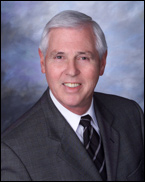Four Mistakes Pastors Make with Church Finances By Dale Marples
Four Mistakes Pastors Make with Church Finances
By Dale Marples
 Dale Marples and his wife, Betty Jo, are ordained through Rhema Bible Training Center and had been pastors for 24 years before retiring in 2010. They pioneered 3 churches during that time. Dale has a degree from the University of Nebraska in Business Administration and Finance. After serving as an officer and pilot in the U.S. Air Force he became a National Bank Examiner and Executive Officer in banking for 25 years. Dale also was Director of Treasury and Budget for the Oral Roberts Evangelistic Association for several years.
Dale Marples and his wife, Betty Jo, are ordained through Rhema Bible Training Center and had been pastors for 24 years before retiring in 2010. They pioneered 3 churches during that time. Dale has a degree from the University of Nebraska in Business Administration and Finance. After serving as an officer and pilot in the U.S. Air Force he became a National Bank Examiner and Executive Officer in banking for 25 years. Dale also was Director of Treasury and Budget for the Oral Roberts Evangelistic Association for several years.
Today Dale has a consulting company, CFO Omaha, Inc., which provides financial management solutions for companies and churches and prepares business plans and financial proposals. He has also developed a financial seminar for pastors, staff members and church boards entitled “Church Finances 911” which is designed to enable church leaders to be good stewards of the finances that have been entrusted to them and to establish a financially sound and stable church.
Contact Information:
dale@CFOOmaha.com
www.cfoomaha.com
(402) 502-2255

 Everybody handles money, but not the same amount nor in the same manner. I live in Omaha where Warren Buffet lives. Unfortunately, I don’t handle the same amount of money he does nor do I have the same responsibilities that he has.
Everybody handles money, but not the same amount nor in the same manner. I live in Omaha where Warren Buffet lives. Unfortunately, I don’t handle the same amount of money he does nor do I have the same responsibilities that he has.
As pastor of a church, it is your responsibility to see that the finances are handled in a professional manner and protect the financial foundation of your church. Depending upon the size of your church, you may have the direct responsibility of the finances, or they may be delegated to someone in your staff or advisory board. But regardless of your involvement, the final responsibility is yours. What I want to discuss today are four mistakes pastors make with church finances.
The first mistake is symbolized by a term we have all heard: “Jack of all Trades”. Too many pastors have the “Savior” syndrome, and think they can do everything, or that they have to do everything. Jack of all Trades has a nice ring to it, but later it was added to with “and master of none”. This describes the problem. Trying to be the financial person for the church without knowing how to do the job. Someone may say, “So what’s the problem? I just deposit the money in the bank and write the checks.” If you don’t manage your money and tell it where to go, it will go wherever it wants to go. Someone has to be in charge of the church finances, and if you aren’t, that void will be filled by something else.
Recognize your abilities and what you must give away to someone else. Now I am not saying to “dump” it on someone, but entrust it to an individual who either knows how to do it or can be trained. I have the best doctor. She is very good, but there are times when she knows she is at the limit of her ability and will refer me to a specialist. Know what you can do and don’t try to do a job that you are “master of none”.
The second mistake pastors make in handling the church finances is trying to do a job that is outside of their call. As a pastor, you have been called to “equip the saints for the work of the ministry”. In Acts 6, the disciples focused on their responsibility of continually being in prayer and ministry of the Word. You were not called to be a financial expert, so don’t think that is what you have to be. Do your calling and find someone in your church, or hire a consultant to handle the financial responsibilities, but you have to take care of the flock that God has placed into your care. The world calls that “outsourcing”. I call it common sense.
A church is two things: a place where people come to receive Jesus and grow spiritually. But it is also a business. And when I say that, I mean that it has to be managed financially like a business. When I worked for Oral Roberts, we had a full financial department. Our job was to manage the finances so that Oral had the financial resources to do what God called him to do. For a church to grow and support the work of the ministry, it must have a sound financial base. That’s why finances are to be handled professionally.
The third mistake pastors make with church finances is not planning the finances like they plan other church activities. You need a budget. Sure I know that is a bad word, but get used to it because it’s not going away. A budget is not a square you fill and say, OK, I have one and then put it away in your files. No, it is a road map for the year and you have to follow it in order to reach your goal. Once you have the budget, then you need a plan for following that budget throughout the year. If you are not on budget, find out why, make the necessary adjustments and get back on track. If you don’t, you will run out of money before you run out of year. A good accounting system is needed to track your income and expenses. All of that takes time, and is a time stealer from the pastor’s prayer and ministry time. If you are not a financial expert, then delegate that to a qualified person but remember you cannot delegate responsibility. As the pastor the final responsibility remains with you.
The fourth mistake pastors make is trying to be too spiritual with the church finances. Many of us have heard the leadership in Bible school talk about “faith checks”. There are places for faith, and your church finances is one of those places, but when it comes to writing a check, you better have money in the account to cover it because your bank doesn’t operate on faith. They work in reality. I know because I was a banker and bank examiner for 25 years. If you want cooperation from your banker, talk to him in real terms. Share your dreams and goals with him. Then go to your advisory board and talk faith and make plans for your church.
If you are going to expand or purchase a building or add on to your existing building, this is where you and your advisory board talk faith. Get God’s plan. Then by faith reach out and receive the manifestation. Then go back to your banker and talk reality.
Having been a pastor for 24 years, I know the responsibilities you have of praying and preparing to minister to your flock. You have been trained to do this and it is your calling from God. But the finances of your church are also important and must be handled professionally. How you handle the church finances is a witness to the people in your church and community. They are watching and will make judgment of you and your church based on your financial integrity.
By placing qualified people to assist you in managing your church finances, planning properly and have an organized operating process, you will take stress off of yourself, gain valuable time to minister to God’s flock in your church and establish a sound financial base for the church.
This article is designed to provide accurate and authoritative information in regard to the subject matter covered. It is shared with the understanding that neither the author nor Tony Cooke Ministries is engaged in rendering legal, accounting, psychological, medical or other professional services. Laws and regulations are continually changing, and can vary according to location and time. No representation is made that the information herein is applicable for all locations and times. If legal advice or other expert assistance is required, the services of a competent professional person should be sought.
© Tony Cooke Ministries, Inc. All Rights Reserved


